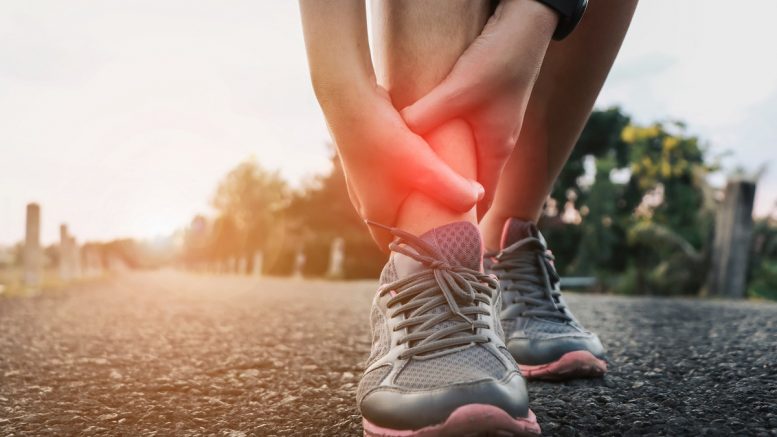Searches for diagnosing foot-related problems are on the rise and Will Munro, Director of FootActive, reveals what the reality and pitfalls are when consumers turn to Google for answers…
If you are guilty of self-diagnosing on the internet, you are not alone.
According to a study carried out in 2020, 59% of the UK said that they Google their health symptoms before consulting a doctor. Also, a further report showed that the results of searches online causes stress in 74% of people.
It is also safe to say that this figure will only have risen since the start of the COVID-19 pandemic, which led to fuller hospitals and long wait times to see and speak to a doctor. A recent study also showed that 41% of UK patients said they had to wait more than a month to have an appointment with a specialist.
Specifically analysing foot-related problems, Google data shows diagnosing searches continue to be high. In the last 12 months alone, there have been:
- a 250% increase in searches for ‘pain on top of foot near ankle’
- a 140% increase in searches for ‘warm sensation in foot no pain’
- a 110% increase in searches for ‘sudden foot pain without injury’
- a 90% increase in searches for ‘foot pain radiating up leg’
This list goes on, with the general theme showing that self-diagnosing searches across a number of different foot-related problems are on the rise.
According to Will Munro, from FootActive, this can cause a massive problem when matching your condition up with the appropriate solution.
He said: “By misdiagnosing the issue yourself, you could end up treating it with something that isn’t going to make a difference. Alternatively, you could end up buying a bespoke product, for say £700, when really there is likely to be a cheaper product on the market that is much more suitable as well as affordable.
“Without this expert knowledge, the search tools like Google may cost you time and money wasted, as well as allowing the health issue at hand to get worse while remaining untreated.”
Talking specifically about price, it is easy for people to assume that a bespoke product for a particular foot problem that costs £700 is going to be better than something that costs a lot less, regardless of Google.
Will Munro stresses that this is not the case – unless you have a very particularly severe foot issue. Usually, investing far greater money in bespoke products can be hugely unnecessary. A lot of shoes are made the same and once you’ve identified the foot problem you’re dealing with having spoken to an expert, there will likely be something on the market a lot cheaper.
He added: “There have been cases where people have spent thousands of pounds on bespoke products when they have not needed to.”
Everyone’s pain is different
FootActive also advises that every person is unique. For example, some people have a high pain threshold and can cope with a certain material density compared to others. This makes it difficult to know what is and isn’t right for you when purchasing footwear and dealing with foot issues, without speaking to someone with expert knowledge first.
Will Munro said: “There isn’t exact data around how long it takes a person to proactively try diagnosing and solving a foot problem, but what we know is that it is incredibly common, particularly in younger people.
“There is a stigma still that associates insoles with older people. That simply just isn’t the case. Data also shows that those people who invest in insoles sooner rather than later as a result of a foot problem have much fewer issues going forward, particularly in children.
“Unfortunately, there are still far too many people that will take pain relief, like Ibuprofen, and don’t deal with a foot issue until it becomes unbearable. However, the reality is that it could have been solved far sooner. Again, why expert advice specific to you is crucial.”
The industries that need it most
Another issue when it comes to foot health is the fact that consumers are spoilt for choice and perhaps don’t know what they need to be looking for when it comes to getting the right footwear if the problem hasn’t already arisen.
This in turn will be what causes problems both now and in the future.
“Across the board, people that work in warehouse and manufacturing settings are our most frequent customers. These, generally, are people that are on their feet all day, pacing up and down, lifting heavy items, and don’t have breaks. People in those settings find that they need a lot more support because they’re not provided with the correct footwear for the job that they’re doing.
“We’re big advocates for industries, like manufacturing and warehouses, to incorporate proper foot health guidance and guidelines for its workers. There are studies available in the steel industry that showed when people were provided with the proper footwear, the number of sick days and time off fell dramatically.
“There are simple solutions out there for businesses to avoid these situations, as well as consumers who are buying for themselves. Simply put, not providing the right support for your feet can lead to serious health problems.
“As well as warehouse staff, NHS nurses and doctors come to us frequently. Because of their roles, they do have more understanding of the impact of being on their feet all day. The NPA (National Pharmacy Association), which we are a partner of, is looking more into this issue.”
Final thoughts
Searching for anything online is an act of convenience.
We can make purchases within a click or a tap, we can find answers to our questions, and we can find out the latest news.
However, it isn’t in a position to be able to properly diagnose our issues and doesn’t have that expert’s eye or human touch. Misleading and false information also fill search results constantly, and it can be difficult to know what’s true.
Diagnosing online is an issue that transcends beyond foot problems and, quite often, it can lead to us doing more harm than good in our searches for a solution.
With regards to our feet, though, and while they’re so important, they are also delicate. By trying to identify an issue you’re having online you could be unnecessarily drawing out an issue which can lead to further problems down the line – not just with your feet, but with your legs and back – and also take a significant financial hit in the process.
It would always be our advice to ignore the internet and seek advice from an expert first-hand – someone that recognises what your issue is and guide you towards products, whether that be as simple as the correct insoles and footwear, and solutions that are both cost-effective and suited to your issue.





